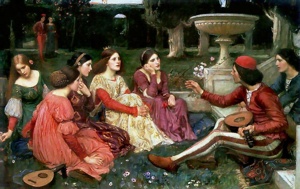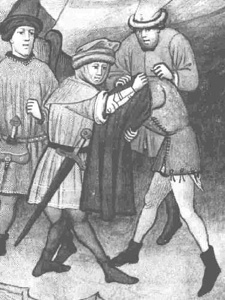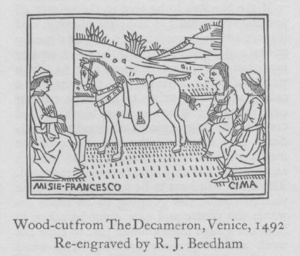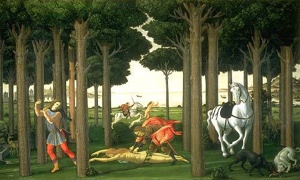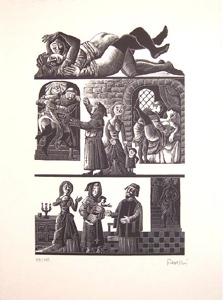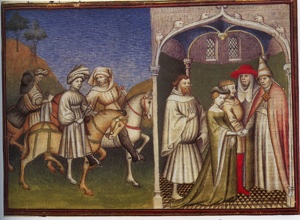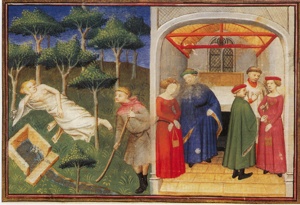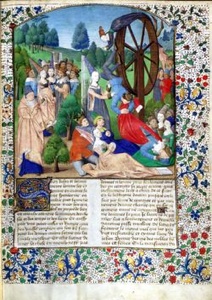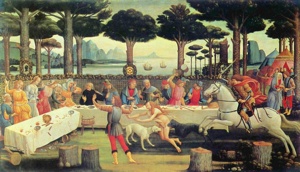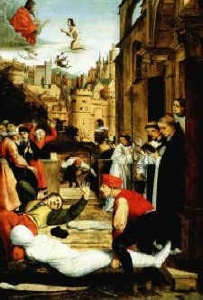 Technology
Technology  Technology
Technology  Misconceptions
Misconceptions 10 Hilarious (and Totally Wrong) Misconceptions About Childbirth
 Weird Stuff
Weird Stuff 10 Warning Labels That Exist Because Someone Actually Tried It
 Health
Health Ten Confounding New Inventions from the World of Biomedicine
 Creepy
Creepy 10 Death Superstitions That Will Give You the Creeps
 Movies and TV
Movies and TV 10 Movies That Get Elite Jobs Right, According to Experts
 Weird Stuff
Weird Stuff 10 Times Real Laws Were Based on Bizarre Hypotheticals
 Animals
Animals 10 Inspiring Tales of Horses Being Human
 Mysteries
Mysteries Top 10 Haunting Facts About the Ghost Ship MV Alta
 History
History 10 Surprising Stories About the Texas Rangers
 Technology
Technology 10 Awesome Upgrades to Common Household Items
 Misconceptions
Misconceptions 10 Hilarious (and Totally Wrong) Misconceptions About Childbirth
 Weird Stuff
Weird Stuff 10 Warning Labels That Exist Because Someone Actually Tried It
Who's Behind Listverse?

Jamie Frater
Head Editor
Jamie founded Listverse due to an insatiable desire to share fascinating, obscure, and bizarre facts. He has been a guest speaker on numerous national radio and television stations and is a five time published author.
More About Us Health
Health Ten Confounding New Inventions from the World of Biomedicine
 Creepy
Creepy 10 Death Superstitions That Will Give You the Creeps
 Movies and TV
Movies and TV 10 Movies That Get Elite Jobs Right, According to Experts
 Weird Stuff
Weird Stuff 10 Times Real Laws Were Based on Bizarre Hypotheticals
 Animals
Animals 10 Inspiring Tales of Horses Being Human
 Mysteries
Mysteries Top 10 Haunting Facts About the Ghost Ship MV Alta
 History
History 10 Surprising Stories About the Texas Rangers
10 Days of the Decameron
The Decameron is a collection of 100 tales by Italian author Giovanni Boccaccio written between 1350 and 1353. It is a medieval allegorical work best known for its bawdy tales of love, appearing in all its possibilities from the erotic to the tragic. Many notable writers such as Shakespeare and Chaucer are said to have borrowed from it. The tale begins with 7 women and 3 men who move to a country villa to escape the Black Death in Florence. The group stays there for fourteen days and on ten of those days they each tell one tale on a set theme. Each day a different person is King or Queen and they decide what the theme will be. One character Dioneo, who usually tells the tenth tale each day, has the right to tell a tale on any topic he wishes, due to his wit.
This is the first list of many more to come, which will explore books that our readers may not have read. The aim is for us all to increase our literary knowledge. If you would like to suggest books that may be worthwhile including in future lists, tell us in the comments.
1. Day One
Under the rule of Pampinea, the first day of story telling is open topic. Although there is no assigned theme of the tales this first day, six deal with one person censuring another and four are satires of the Catholic Church.
2. Day Two
Filomea reigns during the second day and she assigns a topic to each of the storytellers: Misadventures that suddenly end happily.
3. Day Three
Neifile presides as queen during the third day. In these stories a person either has painfully acquired something or has lost it and then regained it.
4. Day Four
Boccaccio begins this day with a defense of his work as it is thus far completed. Although he says that portions of the earlier days were circulating among the literate citizens of Tuscany while the work was in progress, this is doubtful. Instead, Boccaccio is probably just shooting down potential detractors. Filostrato reigns during the fourth day, in which the storytellers tell tales of lovers whose relationship ends in disaster. This is the first day a male storyteller reigns.
5. Day Five
During the fifth day Fiammetta sets the theme of tales where lovers pass through disasters before having their love end in good fortune.
6. Day Six
During the sixth day of storytelling, Elissa is queen of the brigata and chooses for the theme stories in which a character avoids attack or embarrassment through a clever remark. Many stories in the sixth day do not have previous versions. Boccaccio may have invented many of them himself. He certainly was clever enough to have created the situations and the retorts.
7. Day Seven
During the seventh day Dioneo serves as king of the brigata and sets the theme for the stories: tales in which wives play tricks on their husbands. Stories of this type are typical of the misogynistic sentiment of the Medieval era. However, in many of the stories the wives are portrayed as more intelligent and clever than their husbands. Though Boccaccio portrays many of the women of these stories in a positive light, most of the men in the stories are stereotypical medieval/Renaissance cuckolds.
8. Day Eight
Lauretta reigns during the eighth day of storytelling. During this day the members of the group tell stories of tricks women play on men or that men play on women.
9. Day Nine
Emilia is queen of the brigata for the ninth day. For the second time there is no prescribed theme for the stories of the day (the only other time was during the first day).
10. Day Ten
Panfilo is the king of the last day of storytelling and he orders the company to tell stories about deeds of munificence. These tales seem to escalate in their degrees of munificence until the end, where the day (and the entire Decameron) reaches an apex in the story of patient Griselda.
Source: J. M. Rigg English translation (1903)
